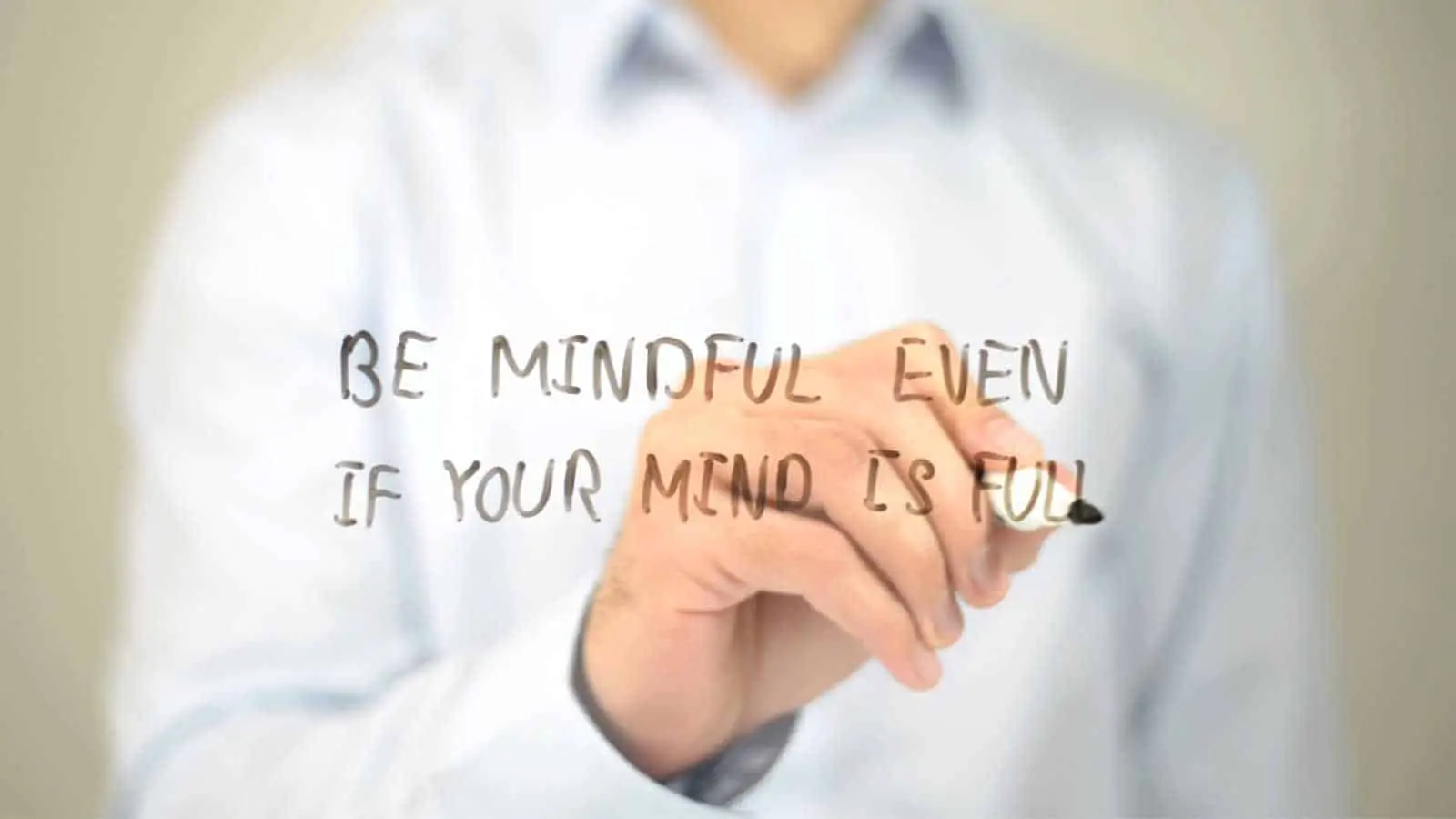Most people engage in mindful practices like yoga and meditation to achieve peace and clarity of mind. However, it takes a while before the effects of mindfulness start to sink in and permeate your life. So how do you know when your mindfulness practice is working?
Here are a few guaranteed ways to know that mindfulness is working:
- You have an improved body awareness
- There’s less irrationality in your thoughts.
- You have better self-control.
- There’s been a change in your behavioral patterns.
- You have an enhanced focus.
- An increased efficiency to your tasks.
- You’re craving more mindful time.
- There’s less need for instant gratification.
- You’re more at peace with uncomfortable feelings.
In this article, we’ll take a look at the different ways mindfulness can positively impact your life.
1. You Have an Improved Body Awareness
Mindfulness typically involves being aware of your mental, emotional, and physical state. As you progress in your mindfulness practice, you’ll notice this physical awareness carry over into other aspects of your life.
You’ll be alert to signs provided by the body and able to respond to them quickly. For example, most people don’t notice their posture or correct it often enough. However, with mindfulness, you’ll see when you’re slouching at a desk and correct yourself immediately.
You also start to become aware of subtle body signs, like the need to stretch or hydrate yourself before you feel thirsty.
2. There’s Less Irrationality in Your Thoughts
Humans are primarily emotional beings, and it’s challenging to divorce emotions from our habitual thinking. As such, many of our choices and decisions are colored by emotions.
When you introduce mindfulness in your life, you’ll notice what most meditators call a ‘gap’ between the emotion that arises and the impulse to act on it.
This ‘gap’ allows you to rationalize your actions and prevent them from directly reflecting your emotional state.
In most people, emotion and action happen together, with little awareness that the two are separate. Training yourself through mindfulness can help cultivate some distance from the feeling so that you can act rationally.
3. You Have Better Self-Control
A study by Medical News Today found that mindfulness meditation was instrumental in helping smokers reduce how much they smoked and even quit cigarettes over time.
Mindfulness meditation has been found to decouple the intense craving to smoke from the act of lighting up, and sometimes becoming aware of the difference is all it takes for a smoker to quit. With regular mindfulness practice, you may start to notice yourself exercising greater self-control in other areas of your life as well.
The enhanced self-control is also due to the patience and persistence you develop through consistently being mindful.
4. There’s Been a Change in Your Behavioral Patterns
We, humans, are creatures of habit and are wired to reproduce the same thought patterns, behaviors, and reactions for most of our lives. It’s hardwired into our nature as the path of least resistance, as there’s less effort involved in repetition.
So don’t be surprised if you find yourself reacting differently to a similar situation or saying no to people when you’re usually the ‘yes’ man in the group.
Mindfulness trains your mind to snap out of repetitive patterns and bring yourself back to the moment. This clarity carries over to other interactions in life, making us less habitual and more primed to deal with situations as we see fit.
5. You Have an Enhanced Focus
People can’t empty their minds of thoughts, as the mind’s role is to produce thought.
During mindfulness, your goal is to become aware of passing thoughts, notice when your mind gets distracted, and gently bring your awareness back to observing.
This practice of returning your center of attention to a task can significantly improve your level of focus in all areas of life. And if you notice yourself being consumed deeply by a task, know that you’re on the right path.
6. An Increased Efficiency to Your Tasks
The best part about inculcating a mindful practice is that the benefits are subtle, and improvements are gradual, giving you taste for what’s in store if you go deeper.
One of the most noticeable changes with regular mindfulness is the efficiency with which you can complete tasks. You can test this theory right now.
Say you have a project to complete or a paper to write, and you’ve done a similar project before. Consider meditating for fifteen minutes before starting on this one.
As you work, notice how quickly things unfold in the project and how you’re able to enter a flow state with your work. Mindfulness is so powerful because it brings a level of focus and clarity to the tasks you engage in.
And if it’s a structured task with clear goals, you’ll notice yourself completing it with greater efficiency.
7. You’re Craving More Mindful Time
Everyone who practices mindfulness has felt this before – the feeling of dread or impending boredom as they sit down to meditate. Mindfulness can be a task in the initial stages, and it’s challenging to carve out time every day to practice it.
However, as the weeks go by, you may notice a tendency to want more mindful time to yourself. This need for more mental silence and peace is a sure sign that your mindfulness practice has been working.
8. There’s Less Need for Instant Gratification
Mindfulness, by its very nature, involves delayed gratification.
Nothing is waiting for you at the end of a 20-minute meditation session (aside from clear thinking).
This constant interaction with delayed gratification can help you build self-control and see value in not having things immediately. You’ll notice less need to check your phone, be on social media, or give in to sweet cravings.
And your self-control is sure to improve as you progress in your mindfulness practice.
9. You’re More at Peace With Uncomfortable Feelings
Most of us run away from uncomfy feelings by burying ourselves in our screens, attending parties, or using substances. These outlets dull the general sense of discomfort the human-animal is meant to experience.
As you initially practice mindfulness, you’ll notice yourself getting uncomfortable. This uneasiness is perfectly normal and part of life. As you progress, the feeling of discomfort may not disappear entirely, but you’ll experience a sort of peace with being uncomfortable.




